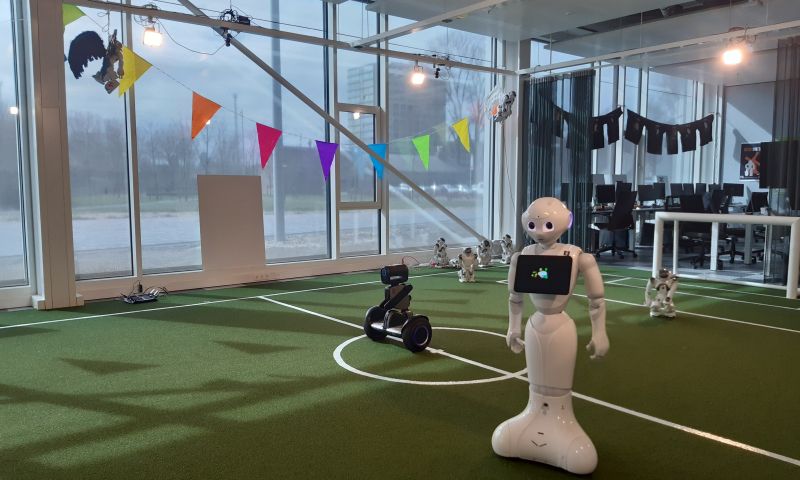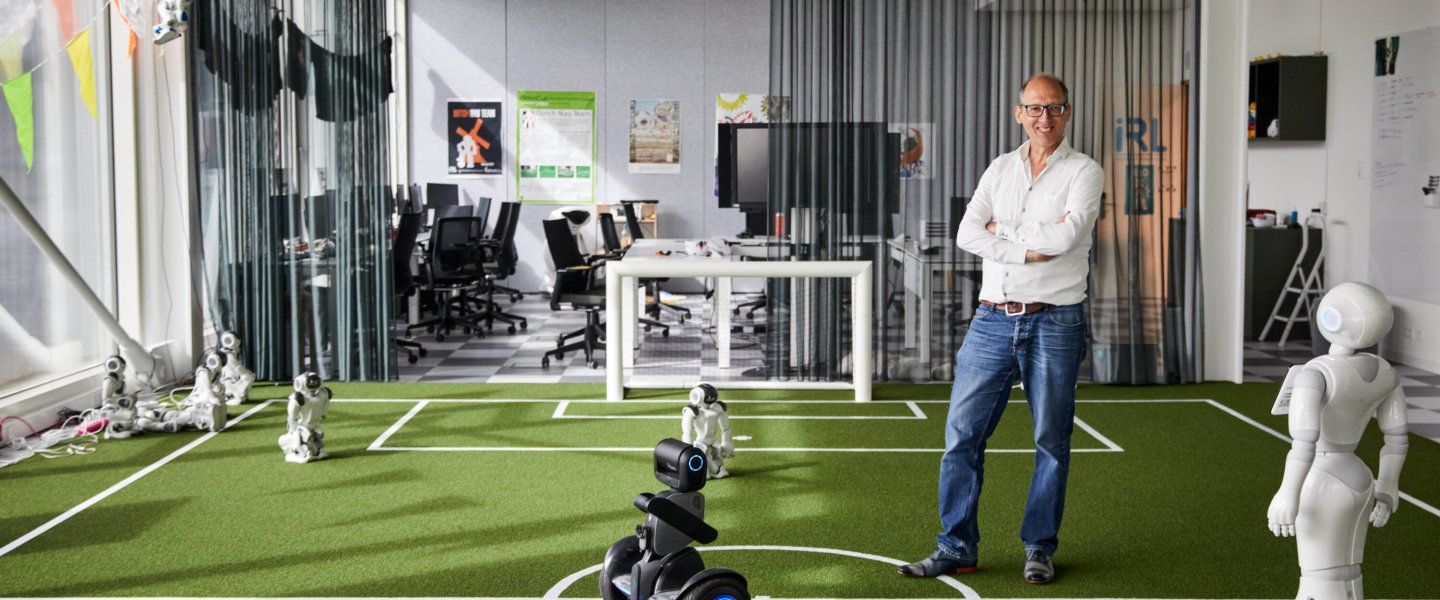
Taking a robot to Mars: it all starts in LAB42
The robotics lab is located on the ground floor of Lab42. This is where Bachelor's and Master's students gain experimental skills. As a result, they learn that an algorithm that works in theory can turn out very differently in practice. ‘Companies are desperate for graduates with these skills.’
Today, there are no robots playing football on the artificial turf in the robotics lab on the ground floor of Lab42. ‘Lots of people think that the robots are constantly playing football here, and they're disappointed to find that’s not the case’, says Arnoud Visser, robotics lecturer and founder of the robotics lab.
‘Most of the developments we’re working on just take place on the computer and that doesn't look very exciting at all.’ He points to the corner of the room. ‘Did you even notice those computers in the corner? That’s where models are currently being trained for my students' final research projects.’
Practical applications of AI
Robotics is part of the Artificial Intelligence degree programme. ‘Artificial Intelligence has many different aspects and applications. It only becomes robotics when you give these applications a body, as in the case of our footballing robots.’ But robotics is a smaller component of the Artificial Intelligence programme than most people think. ‘Only 3 of the 18 subjects in the curriculum are about this.’
How to drive on Mars
Nevertheless, ten percent of Bachelor's students ultimately graduate in this field. ‘There are lots of students who like to focus on the practical applications of AI and how these can have an impact on society.’ As a graduation project, for example, one of his students developed a model for a drone that makes it possible to detect the rust spots on the blades of windmills.
Another student, commissioned by the European Space Agency, had a robot draw up a geographical map of how to drive on the beach at Katwijk. ‘The space agency has a robot they want to send to Mars and the soft sand of the beach resembles the red sand on Mars. The aim is for the robot to also know how to drive there in the future.’
Dutch Nao Team
The football-playing robots are part of the Dutch Nao Team, which consists of Bachelor's and Master's students from the Artificial Intelligence and Computer Science programmes. By programming the robots in advance, the students can get them to play football independently without someone directing their actions. The team enter their robots in competitions all over the world.
‘The students in this team are usually the honours and cum laude students who want an extra challenge. They work on this project one evening a week and one day at the weekend.’
Better than the best football team
The students aren’t just getting the robots to play football for fun. ‘A well-known experiment within AI is the Turing test. This allows you to find out if a system is genuinely intelligent.’ Until 1997, chess was one of the tests. But in that year, the former world chess champion Gary Gasparov was defeated by supercomputer IBM Deep Blue. ‘Then people started thinking, “What's harder than chess?” And they came up with football. As a result, the latest AI goal is for robots to play football better than the best team in the world in 2050.’
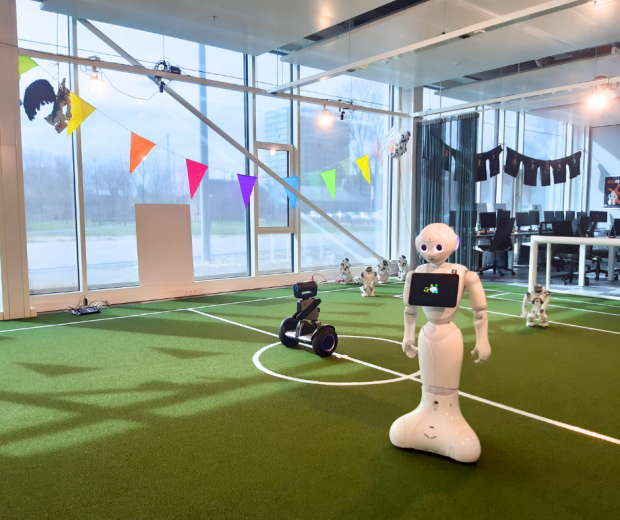
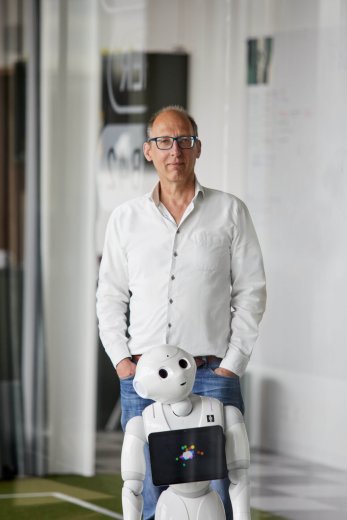
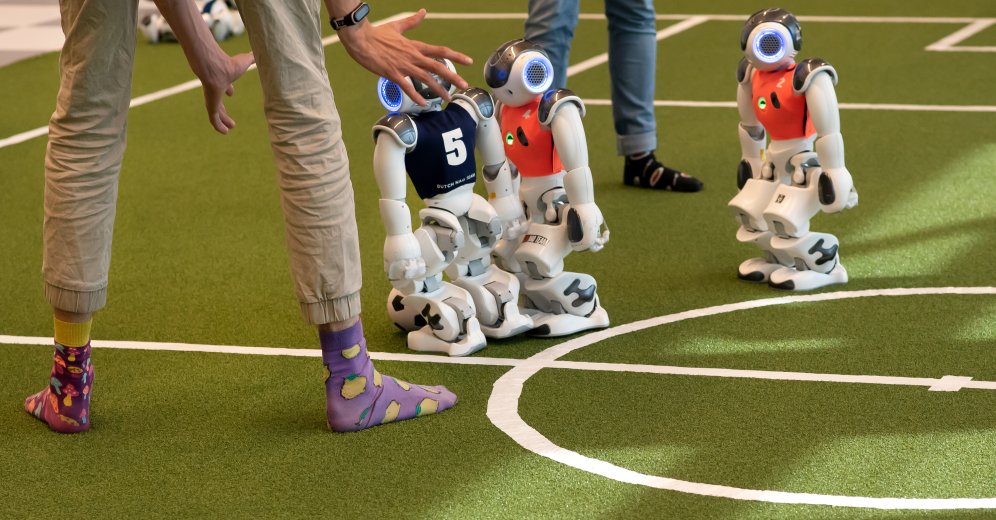
Students with experimental skills
The Dutch Nao team definitely isn’t there yet. So far, this project has mainly provided students with experimental skills. ‘This means that you repeat an experiment a number of times and change a single factor each time, such as the weather conditions’, explains Arnoud. ‘This teaches students that although they might be able to come up with an algorithm that works in theory, in practice – for example in unexpected circumstances – it might turn out very differently.’
Desperate companies
Companies are desperately looking for graduates with these skills. And according to Arnoud, students who graduate in robotics are therefore a step ahead of their fellow students in the field of Artificial Intelligence. ‘They aren’t just designing datasets, but also getting to focus on what the robot actually sees and touches at that moment. You can see right away what works and what doesn't.’
About Arnoud Visser
- Founder of the Intelligent Robotics Lab; a collaboration between robotics researchers at the Vrije Universiteit and the University of Amsterdam;
- Teacher at Bachelor Artificial Intelligence.
- More information on personal page on the UvA site.
